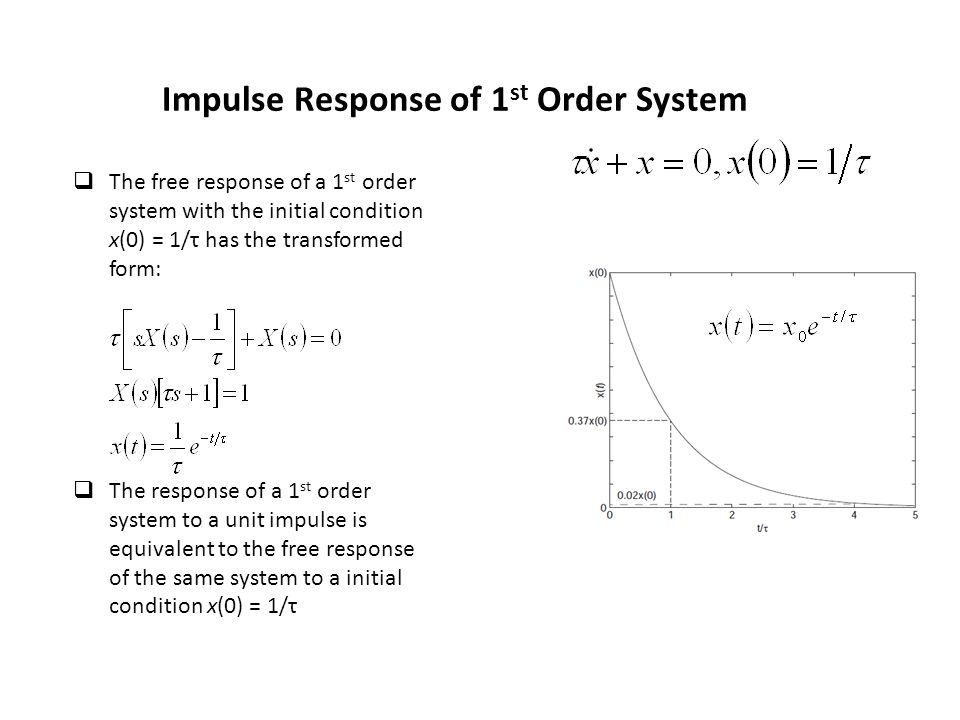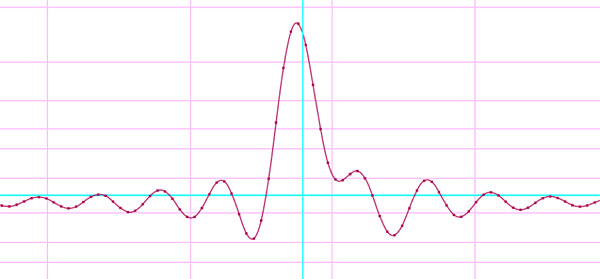watchnerd
Grand Contributor
What does the Impulse Response of an Analog (parts bin) low pass filter look like?
What kind (Butterworth etc.) and what order?
What does the Impulse Response of an Analog (parts bin) low pass filter look like?
I'll plead a bit of ign'ance here...
May I order the Sampler Platter?

Both - i.e. the fact that it is not correct.
Here you go:I'll plead a bit of ign'ance here...
May I order the Sampler Platter?
The filter that is a genuine reconstruction filter rather than someone squiggling around with a biro and seeing what it does.All filters are trade-offs -- which do you deem to be "correct"?
The filter that is a genuine reconstruction filter rather than someone squiggling around with a biro and seeing what it does.
A windowed sinc function of sufficient size to give acceptably small errors. Everything else is unnecessary FUD.

Hey Nathan: Great points. I was chatting (last 1-2 weeks) at 'S-phile' regarding MQA and I, as you commented that perhaps a MQA facsimile could be attained with simple filter selection (on DAC's so equipped), as you suggest:I thought Arstechnica's article on MQA was interesting, though it didn't delve into the technical side as much as Stereophile. The subjective impressions, under "MQA's cracks begin to show" were what caught my attention:
https://arstechnica.com/gadgets/201...hing-you-need-to-know-about-high-res-audio/7/
"While focusing on an individual strand of a song it is easy to be impressed by the hi-fi clarity of that singer, this soloist, that instrument. But stepping back to hear how a group plays together as a band, I found myself increasingly confused by the result. Rather than hearing an ensemble fitting together to provide a result at least equal to the sum of parts, the overall pulse of the music seemed less coherent. The song's pace was often askew, sounding too fast and hurried.
Stereo soundstaging with MQA was wide and airy, but foreshortened in depth, to give the effect of musicians crowding and overlapping each other. The sound palette could at times seem enervated, lightened, lacking substance. And my concentration through the length of a song would waver, as if I had to reconstruct the sense of the music in my head, some cognitive load upsetting relaxed infusion.
Looking at other rave reviews, I may be the first and only listener to be unsettled by MQA encoding. But it is possible my subjective impressions of spoiled timing, tonal recasts, and soundstage confusion are symptoms of phase anomalies introduced by various non-linear phase filters in the MQA chain. Somewhat tellingly, I did find that these amusical effects could be more or less replicated from regular PCM audio, by simply switching from linear-phase to minimum-phase interpolation filter on both Mytek and Pioneer hardware."
I thought Arstechnica's article on MQA was interesting, though it didn't delve into the technical side as much as Stereophile. The subjective impressions, under "MQA's cracks begin to show" were what caught my attention:
https://arstechnica.com/gadgets/201...hing-you-need-to-know-about-high-res-audio/7/
"While focusing on an individual strand of a song it is easy to be impressed by the hi-fi clarity of that singer, this soloist, that instrument. But stepping back to hear how a group plays together as a band, I found myself increasingly confused by the result. Rather than hearing an ensemble fitting together to provide a result at least equal to the sum of parts, the overall pulse of the music seemed less coherent. The song's pace was often askew, sounding too fast and hurried.
Stereo soundstaging with MQA was wide and airy, but foreshortened in depth, to give the effect of musicians crowding and overlapping each other. The sound palette could at times seem enervated, lightened, lacking substance. And my concentration through the length of a song would waver, as if I had to reconstruct the sense of the music in my head, some cognitive load upsetting relaxed infusion.
Looking at other rave reviews, I may be the first and only listener to be unsettled by MQA encoding. But it is possible my subjective impressions of spoiled timing, tonal recasts, and soundstage confusion are symptoms of phase anomalies introduced by various non-linear phase filters in the MQA chain. Somewhat tellingly, I did find that these amusical effects could be more or less replicated from regular PCM audio, by simply switching from linear-phase to minimum-phase interpolation filter on both Mytek and Pioneer hardware."
Yeah, the remote would be a pre-req for me to use it in my living room, but the lack of analog input kills it for me since I also have a TT.
There are a few things in there. Let's start with the basics.
In practice it can never be generated because it requires infinite energy and infinite bandwidth. Such a thing does not exist in nature.
.
You could get a Puffin and feed its digital out to the DAC…
what is this in reference to?
I already have a Puffin.
You necroed me
